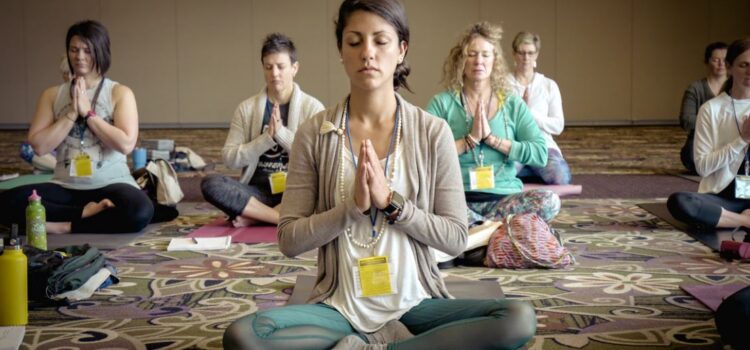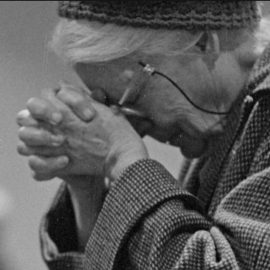

This article is an excerpt from the Shortform book guide to "Radical Acceptance" by Tara Brach. Shortform has the world's best summaries and analyses of books you should be reading.
Like this article? Sign up for a free trial here .
How can Radical Acceptance help us to improve our mindful relationships with other people? Why is community so important in Buddhism?
Although we hear many stories of people who isolate themselves to go on spiritual journeys, humans are social creatures, and our spiritual journey can’t happen in isolation. The Buddha called sangha—community—a treasure of the spiritual path. That’s because communities have strength that individuals lack.
Keep reading to learn why mindful relationships and community are important for Radical Acceptance.
Practicing Mindful Relationships
A lot of the pains and fears we carry are the results of our relationships with other people. Therefore, we can’t truly heal while isolating ourselves. Mindful relationships and community are powerful and necessary forces, and Radical Acceptance can help us to fully engage with them just as it helps us engage with our own inner lives.
Radical Acceptance in Relationships
Humans are social creatures, and our spiritual journey can’t happen in isolation—a great deal of our pain comes from our relationships with each other, and it can only be healed through relationships.
When we have awareness and compassion in our relationships—in other words, when we approach them with Radical Acceptance—they can be powerful tools for spiritual growth and healing.
Note that ”relationships” here doesn’t just mean romantic relationships. We have relationships with everyone we interact with: family, friends, teachers, colleagues, and so on.
Practicing Radical Acceptance for ourselves teaches us that our own suffering isn’t wrong, and pain doesn’t mean that there’s something wrong with us. We can get that same message from others, and give it back to them. Giving Radical Acceptance to others reminds them that they are inherently good and worthy of love. When we practice Radical Acceptance of others, and they practice Radical Acceptance of us, we can find wells of confidence and strength we never knew that we had.
For an example of what this strength can do, Radical Acceptance is the key to interventions for alcoholics or drug addicts. An intervention isn’t about confronting or attacking the addict. Instead, the key is to let the addict see and hear the people who love him in spite of the harm he’d caused to himself and others.
Communities have strength that individuals lack.
The Importance of Community Relationships
This story is an example of the importance of mindful relationships in Buddha’s life. The Buddha called sangha—community—a treasure of the spiritual path. Indeed, sangha’s benefits are exemplified by the Buddha’s relationship with his cousin Ananda. Ananda saw to the Buddha’s material needs, and the Buddha offered Ananda unwavering spiritual guidance. Each supported the other and provided what he needed.
Opening our hearts to others can be a gift to them, as well as to us—it might make them feel welcome to do the same. For example, someone who’s nervous about performing in a show might share that feeling with their fellow performers. In doing so, not only is that person addressing her own fear, she’s opening the door for other people to share their own discomfort and offer mutual support.
Exposing our vulnerabilities through mindful relationships is always a risk, but we’ll suffer much worse pain if we keep ourselves isolated from one another.

———End of Preview———
Like what you just read? Read the rest of the world's best book summary and analysis of Tara Brach's "Radical Acceptance" at Shortform .
Here's what you'll find in our full Radical Acceptance summary :
- How to live your life fully experiencing everything
- Why you need to let go of judging yourself or your experiences
- How you can acknowledge and welcome any experience






